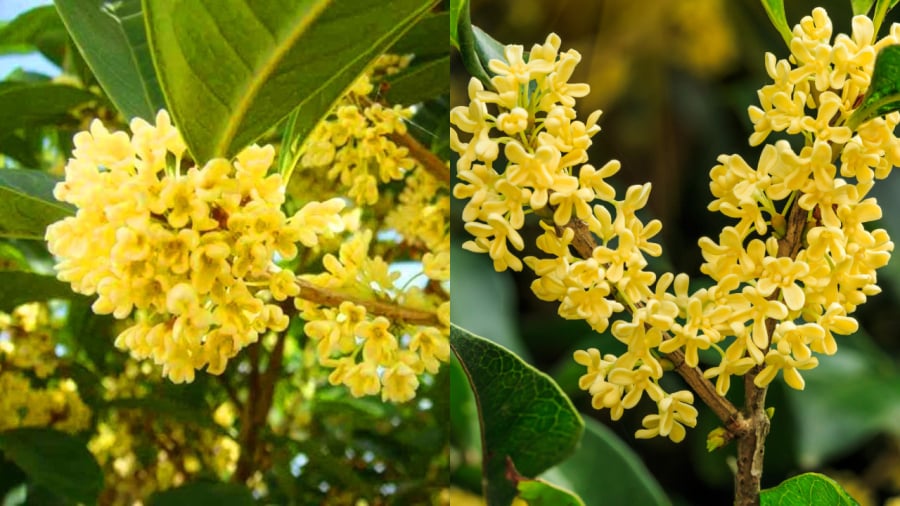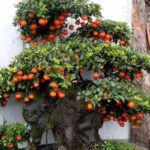Why did ancient people say, ‘Planting a Fragrant Cinnamon Tree in Front of Your House Attracts Noble People’?
The cinnamon tree (also known as the cassia tree, cassia cinnamon, or Chinese cinnamon, distinct from the cinnamon tree used for its bark as a spice) is a popular plant in many Asian countries.
Beyond its aesthetic value as an ornamental tree, the cinnamon tree offers a plethora of practical uses. Its flowers can be used for tea infusions, liquor, baking, and dessert making. The tree itself provides shade and grows to a modest height of 3-12 meters, with branches spreading outward.

The Cinnamon Tree: A ‘Noble’ Addition to Your Home
Historically, the cinnamon tree has been revered as a ‘noble’ plant, bringing good fortune and prosperity to homeowners who plant it in their front yards. Its fragrant flowers are believed to attract noble people and bring positive energy to the household.
Symbolically, the tree represents longevity and good health. In fact, the flowers are known to have health benefits, including skin nourishment and detoxification, making them particularly beneficial for elderly family members.
From a feng shui perspective, the cinnamon tree is considered a powerful tool for attracting wealth and improving the family’s financial situation.
3 Places to Avoid Planting the Cinnamon Tree
Despite its positive impact on home feng shui, there are a few locations that should be avoided when planting a cinnamon tree:
– Areas with extremely cold winters: Cinnamon trees thrive in warm environments, so they may struggle to survive in regions with harsh winters.
– Shady areas: Cinnamon trees require sufficient sunlight to grow and flourish. Planting them in shaded areas may lead to stunted growth and wilting. Additionally, insufficient sunlight can hinder the tree’s ability to produce flowers.
– Waterlogged areas: While cinnamon trees prefer warm and moist environments, they can also tolerate droughts to some extent. However, planting them in waterlogged areas can lead to root rot and other issues. Ensure the planting site has well-drained soil to prevent waterlogging.
Cinnamon trees favor slightly acidic soil. They can even grow in nutrient-poor soil, although extremely barren soil may hinder their development and flower production.
This information is for reference only and should be considered in conjunction with other factors.
“The Hidden Significance of Succulent Plants in Feng Shui”
Succulents, or fat plants as they are sometimes affectionately known, are a popular choice for many gardeners and plant enthusiasts. These small, yet captivating plants boast an array of unique and beautiful leaves that set them apart from other flora. With their compact size and easy-going nature, they have earned a special place in the hearts of many, becoming a beloved addition to homes and gardens alike.
The Golden Treasure: A Rare Find for Abundance and Prosperity
Do you know of a houseplant that is considered a “family heirloom”, bringing luck and prosperity to the household? The Golden Orange Tree, or ‘Hong Da’ as it is often called, is this coveted plant. With its branches laden with golden, shimmering oranges, the Hong Da is an exquisite sight and a symbol of opulence and wealth.





































